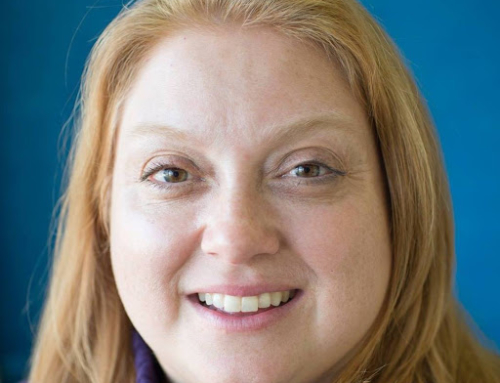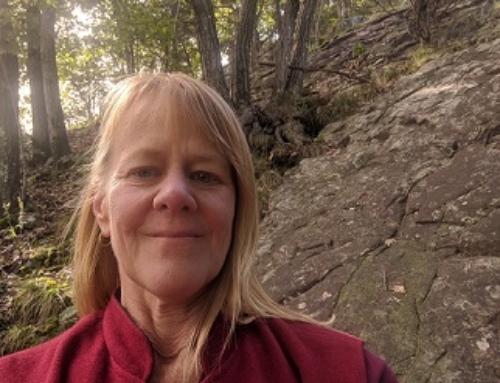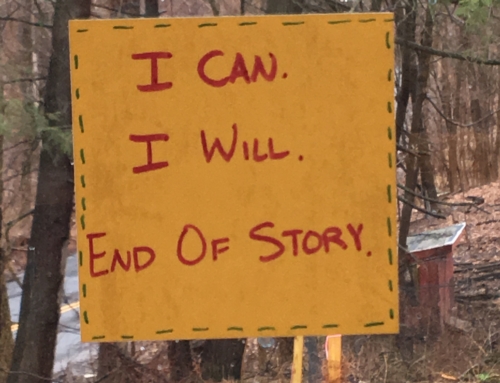By Melissa Spear
Executive Director
These remarks were delivered at a ceremony honoring Joan Gillette which took place at Common Ground on May 8, 2017.
Thank you all for being here today as we honor one of our founders, Joan Gillette, who played an important role in both creating and realizing the vision for the New Haven Ecology Project and Common Ground High School. As I look around I see a number of our founders and holders of our history here today. I have only been with Common Ground for eight years so am relatively new to the organization. Nevertheless, I will tell you what I know about our origins, and the important influence the vision of Joanie and our founders continues to have on who we are today.
The New Haven Ecology Project was incorporated as a non-profit over 25 years ago with a commitment to – and here I will take from the original charter for Common Ground High School – “provide educational programs for children and young people that promote scientific knowledge and critical thinking skills through the study of the local environment, ecology and food production, that develop leadership skills and personal growth through service to their community, and that encourage application of these skills to solve complex environmental and social problems.”
In its first few years the founders of the New Haven Ecology Project developed and implemented a variety of programs designed to fulfill this promise. These programs took place in schools, at the West Rock Nature Center just down the road, and eventually here on this site which we gained access to in 1996. In 1997 our founders were presented with an amazing opportunity when legislation was enacted that allowed for the formation of publicly funded charter schools in Connecticut. NHEP’s founders immediately went to work drafting and submitting an application to the State Board of Education to open Common Ground High School. That year NHEP was one of 3 not-for-profits approved by the state Board of Education to operate Connecticut’s first charter schools. Accompanying our application to operate a charter school was the Charter referred to above, under which Common Ground High School continues to operate today.
Looking back at this original charter, drafted by Joanie and our other founders, I was once again struck by how relevant and timely it remains today, 20 years after it was first written. Let me share a few excerpts that seem particularly relevant. First, the mission:
Common Ground High School is shaped by an ecological framework derived from the basic premise of ecology: All living and non-living things on earth are connected and interdependent. The study of natural systems reveals simple yet powerful concepts that help us understand human systems as well. An ecological framework goes beyond science; the study of nature includes human nature.
And continuing on:
Common Ground High School will graduate students with the knowledge, skills and motivation to live healthy, productive and sustainable lives. We will do so through authentic learning that develops ecological literacy, academic accomplishment, strong character and a commitment to community
Next, the vision:
Common Ground is where people, connected through their universal needs and aspirations, come together. We envision a school where student’s direct experiences lead them to understand the common truths among people rather than the differences which separate them.
The Charter adopts an ecological framework to guide its work:
Our basic educational premise is that life and learning do not exist in discrete disciplines: the world is interdisciplinary. The ecological framework is intrinsically interdisciplinary and empowers students to seek answers to essential questions, see themselves in relation to the world, and grapple with big ideas.
On the role of the farm our founders wrote:
When working with food and the farm, children’s natural curiosity about other organisms and how they survive leads to learning in environmental science, nutrition, the chemistry of their bodies, and the science of key global processes. The farm is the metaphor that connects hands-on experience to the larger context of life.
And finally, about the urban context:
Students at Common Ground will study the city as an ecosystem. An ecosystem approach focuses on the interplay between people, cultures, natural systems, and civic institutions. The city is a resource for real-world inquiry and problem solving. As part of this integrated study of the urban system student action projects will address social and environmental needs.
What is absolutely clear looking back to the Charter is that while it is a 20 year old document that most current employees have likely never seen, and that is referred to rarely, it is truly a part of our DNA as an organization. The way Common Ground walks through this world – our values, our culture, our priorities, our programs – continues to be deeply informed by this original manifesto. This is evident in the statement of organizational values we adopted last year.
In this statement we describe how we are “rooted in our place — a farm, in a forest, in the City of New Haven. The people and ecology of our place are the foundation of all we do. Our work starts here, and ripples outward”. We affirm our dedication “to providing many different opportunities for people to learn, grow and take action to improve the world, including through direct exploration and discovery of nature, our food sources, and the local community.” And we describe our commitment to a diverse, connected community as “essential to healthy, resilient ecological and human communities. Just as we are committed to conserving and supporting biological diversity, we are committed to cultivating a diverse human community that thrives within an environment of trust, equity, dignity, and interconnectedness”.
This commitment to our place, our people and our community; our explicit recognition of the interconnections that bind us all to each other and to the natural world; our determination to taking action to improve the world are all aligned with the original vision of Common Ground put forth by Joan and her co-creators. This original vision also continues to be clearly evident in our programming. At our center for outdoor learning we work to connect young people to the natural world in joyful and meaningful ways through outdoor experiences and play.
Our farm runs a Mobile Market in partnership with Cityseed that brings fresh produce grown here into under resourced communities with limited access to sources of healthy food. Our schoolyards program works with schools throughout New Haven installing school gardens and schoolyard habitats and providing teachers with the professional development and support they need to bring their classrooms outdoors for hands on learning experiences. Through Teach our Cities we collaborate with urban environmentally themed high schools across the country to share best practices, and develop strategies, approaches and curricula that, through authentic learning experiences, engage urban youth in becoming civically engaged as environmental and community leaders.
Finally let’s talk about Common Ground High School. Students come to our school from all over the state. Between 60 and 70% are residents of New Haven with the remainder coming from as far away as Waterbury, Ansonia, and Bridgeport. Our student body is healthily diverse racially, ethnically and socioeconomically. More than 50% qualify for free and reduced lunch.
At Common Ground, students are in the unique position of benefiting not only from all that is offered through the high school’s academic programs, but from being able to interact in meaningful ways with all of the programs we run here through our Green Jobs Corps. Our students are employed on the farm, they work for the Mobile Market, they serve as counselors in our Summer Camp and in our Kids Unplugged after school program, they install vegetable gardens and schoolyard habitats at schools throughout New Haven, and they help maintain and improve our site. Through the same program they also work for other community non-profits planting street trees, at the farmers market, installing wildlife habitats, and improving the ecological quality of the West River Watershed.
These experiences make a significant contribution to the success of our students as they graduate and move on to college and career. In each of the last 5 years at least 90% of graduating seniors enrolled in college. In our last graduating class 83% of seniors enrolled in college This year 100% of our college students returned to college for their sophomore year.
The main obstacle to college attendance for many of our students is financial – we all know that attending college is a huge financial lift, and often almost impossible for our low income families. Even with rich financial aid packages covering tuition and fees, many of our students cannot afford the books and other supplies they need to attend courses.
This is where you can help – by donating to the Joan Gillette scholarship fund. The fund has already helped three of our students remain enrolled in college. With your help we hope to create a fund that will support many more, allowing them to fulfill the promise of becoming the next generation of environmental and community leaders.




I loved your seedlings sale. There was a great variety and you gave
Community gardens a break.
Mary